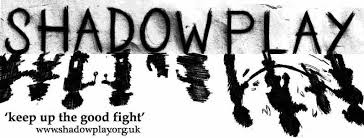'It was the day my grandmother exploded. I sat in the crematorium, listening to my Uncle Hamish quietly snoring in harmony to Bach's Mass in B Minor, and I reflected that it always seemed to be death that drew me back to Gallanach.'
Prentice McHoan's openings words of The Crow Road often come back to me in moments of dark humour and it is fitting that their author's passing this week came after a period resigned to his death.
Banks died this week just three months after announcing he had been diagnosed with gall bladder cancer and just 11 days short of the publication of his final novel, The Quarry. Morbid irony has been something on which Banks has built a career so although his final novel casts a narrator dealing with his dad's terminal cancer, he was 87,000 words into the book before discovering his own illness. "I've really got to stop doing my research too late. This is such a bad idea," Banks said before his death.
The tributes which have poured in via the prolific writers' fan site have been astonishing and it's heartening as a true fan myself to see that other people have had similar reactions. From identifying with his characters to taking inspiration from his musical references, Banks has helped shaped my life and plenty of others' too.
Like another personal favourite, Haruki Murakami, Banks was not afraid to riff on the same themes novel after novel, giving the readers what they wanted and keeping his focus narrow in his works. Where Murakami writes about jazz, hotels and cats, Banks visits misjudged youth, death and remote Scottish locations. He also identified that this distinct brand differed significantly from his science fiction writing to the point it may alienate (pun intended) many fans, choosing to pen the sci-fi novels under Iain M Banks in a clever move.
 |
| Joseph McFadden as The Crow Road's Prentice McHoan |
Perhaps his finest achievement was to create believable characters. From the flaws that lie in bass guitar rock'n'roll star Dan 'Weird' Weir in Espedair Street to journalist Cameron Colley in Complicity, the odd foibles and failings of his distinct main characters, McHoan in particular, are something to revel in. Banks is also able to weave in the darkly humorous and odd too. In arguably his most celebrated novel, The Wasp Factory (Banks' debut aged 30), Banks creates Frank Cauldhame, a 16-year-old with a fascination for killing insects and a bizarre relationship with his family that results in a wicked twist at its conclusion. Banks' ability to sooth and shock in equal measure through twisted and depraved imagery cannot be underestimated.
He described himself as a 'slacker' but wrote a swathe of mainstream bestsellers which he knocked off a couple of months at a time at a rate of 3,000 words a day.
However, Banks was not a flawless character. His sci-fi novels were often hugely indulgent while Raw Spirit, a travelogue of Scotland and its whisky distilleries published in 2003, is an example of success allowing artistic freedom to publish vanity projects. Moreover, his brusk manner, often interpreted as arrogance, made Banks a hard person to like in interviews.
But the calm, quiet manner in which he slipped from this world showed in his actions that Banks was the wry characters his books suggest.
His writing will be missed and his legacy remembered. Let's hope there's no explosions at the funeral.


No comments:
Post a Comment